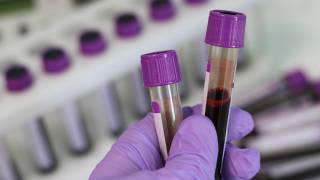Louisville Aggressively Tackles Hepatitis A Outbreak

The Hepatitis A outbreak in the ‘Heartland’ states continues to expand in Arkansas, Indiana, Missouri, Ohio, Tennessee and West Virginia.
But, Kentucky may be the most aggressive state deploying vaccination services to its residents, since the best way to prevent a hepatitis A infection is to get vaccinated.
The hepatitis A outbreak in Louisville was first declared in November of 2017.
As of July 2, 2018, there have been 507 cases and 3 deaths associated with this hepatitis A outbreak.
As of July 2, 2018, approximately 77,534 people living in our region have been vaccinated by us and our community partners, reported the Louisville Metro Department of Public Health and Wellness.
Of those individuals, over 6,000 Louisville area food service workers have been vaccinated.
This is important since the Centers for Disease Control and Prevention (CDC) national risk factor report for June 11, 2018, identified 32 percent of hepatitis A cases are diagnosed in other people, such as food service staff.
The Louisville Health Department issued 10 key things people should know:
- The hepatitis A virus is being spread through person to person contact: Sharing a home, a cigarette, marijuana joint, a drink, or sex with someone who has the virus puts you at high risk.
- There have been cases of hepatitis A in every Louisville ZIP code.
- While the outbreak is largely centered in people who use drugs (any kind of drug use, not just injecting) and people who are homeless, 1 out of 8 cases report no risk factors.
- More than 60 percent of the 478 people who have had hepatitis A have been hospitalized. Getting hepatitis A can make you very sick.
- A person can have hepatitis A for up to 2 weeks before symptoms ever develop. During that 2 weeks, they are contagious and exposing others to the virus.
- The hepatitis A virus can live for a long time on surfaces. Disinfecting kitchens and particularly any restroom open to public use with a solution of bleach and water is the most effective way to kill the virus. Specific disinfection guidelines can be found here.
- Washing your hands thoroughly and often with warm water and soap is a way to protect yourself from many diseases, including hepatitis A. Be aware that hand sanitizer has not been proven as effective as handwashing against hepatitis A.
- For the best protection, you need to be vaccinated against hepatitis A. The Louisville Metro Department of Public Health and Wellness, as well as the Kentucky Department for Public Health, have been encouraging residents of Jefferson and any other counties with a hepatitis A outbreak to get vaccinated for several months.
- Most health insurance plans should cover 100 percent of the cost of the hepatitis A vaccination. If your pharmacist or healthcare provider tells you there’s a cost, contact your health insurance provider to find out where they allow you to get vaccinated at no cost.
- If you get diagnosed with hepatitis A and we call you, please talk to us. When someone gets infected with a communicable disease, a nurse or epidemiologist from Public Health and Wellness will contact them. Any information you share is protected and helps us make progress in stopping the spread of hepatitis A.
According to the CDC, the inactivated vaccines containing HAV antigen currently licensed in the United States are:
- the single-antigen vaccines HAVRIX® (manufactured by GlaxoSmithKline, Rixensart, Belgium) and,
- VAQTA® (manufactured by Merck & Co., Inc., Whitehouse Station, New Jersey) and,
- the combination vaccine TWINRIX® (containing both HAV and hepatitis B virus antigens; manufactured by GlaxoSmithKline).
- GamaSTAN S/D (Grifols Therapeutics, Inc., Research Triangle Park, North Carolina) immune globulin (IG) for intramuscular administration is the only IG product approved for HAV prophylaxis.
The efficacy of IG or vaccine, when administered greater than 2 weeks after exposure, has not been established, says the CDC.
Most pharmacies in the USA offer hepatitis vaccines.
To schedule a vaccination appointment at a local pharmacy, please click here.
The CDC Vaccine Price List provides current HAV vaccine contract prices and general information, and vaccine discounts can be found here.
Vaccines, like any medicine, can have side effects, says the CDC. You are encouraged to report negative side effects of vaccines to the FDA or CDC.
For more information about hepatitis A call 211 or visit here.
Our Trust Standards: Medical Advisory Committee

























